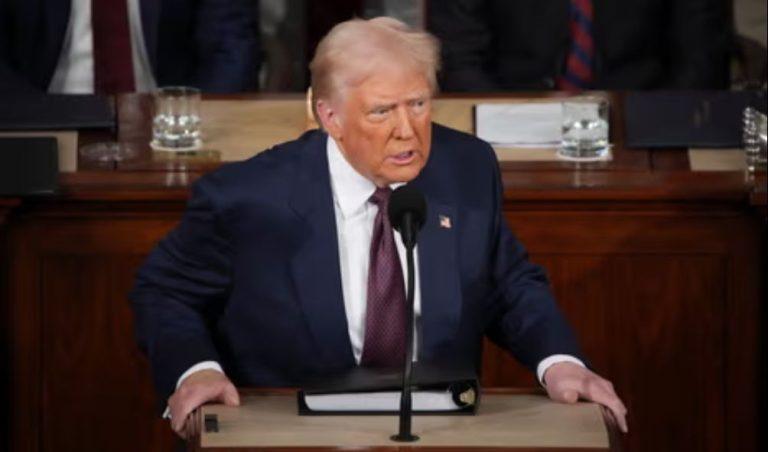‘I wasn’t there’: Donald Trump Distances Himself from Signal War Chat Leak Calling It a Witch Hunt
Former US President Donald Trump has denied involvement in the recent group chat leak that revealed sensitive war discussions. Trump claimed he “wasn’t there” and suggested that the messaging app Signal might be “defective.”
Trump Calls Leak a “Witch Hunt”
On Thursday (AEDT), Trump dismissed the scandal, calling it another “witch hunt.” This comes after The Atlantic published the leaked war details, which its editor, Jeffrey Goldberg, had accidentally seen in a March 15 Signal chat.
Trump’s administration is trying to manage the fallout after it was revealed that top advisers had used the encrypted app Signal for war discussions. The group chat reportedly included Defence Secretary Pete Hegseth and national security officials.
“There was no harm done because the [US] attack [on Houthi militants in Yemen] was unbelievably successful that night,” Trump said. He also praised Hegseth’s leadership and stated that the leak “doesn’t bother me.”
Trump Questions Signal’s Security
Trump suggested that Signal might not be a reliable messaging platform. “Everybody uses Signal, but it could be defective, and we’re gonna have to find that answer,” he said, offering no proof to support his claim.
Leaked Messages Reveal War Plans
Initially, Goldberg had declined to publish the leaked chat details, but he released them on Thursday. The messages show that Hegseth discussed plans to kill a top Houthi militant in Yemen just two hours before the military operation. This raises security concerns, as such sensitive plans are usually classified.
Many in Washington are outraged that war discussions were held on a commercial messaging app, possibly on personal phones. Democrats are demanding that Trump’s national security team members be fired for the leaks.
Hegseth denies sharing classified war plans, while Trump’s team insists no sensitive information was leaked. However, former officials argue that even timing and targeting details are highly confidential.
Calls for Investigation
Democrat Jim Himes expressed relief that US pilots were not harmed, while Republican Senator Roger Wicker called for an independent probe. He emphasized that the messages appeared sensitive enough to be classified.
A Pentagon official, speaking anonymously, stated that some of Hegseth’s messages could have been classified at the time, raising concerns about when and how they were declassified.
Fallout from the Scandal
The leaked messages included:
- Hegseth’s “TEAM UPDATE” message detailing the mission.
- A follow-up from National Security Adviser Mike Waltz confirming the killing of the Houthis’ top missile expert.
- A message stating, “We had positive ID of him walking into his girlfriend’s building and it’s now collapsed.”
While the chat did not disclose the exact locations of the targets, experts argue that the nature of the conversation still posed a security risk.
Official Reactions
Pentagon spokesman Sean Parnell defended Hegseth, stating that he was simply updating the team on an already-approved mission. Meanwhile, CIA Director John Ratcliffe testified that the chat was meant for unclassified discussions, with classified details shared through secure channels.
Waltz, who created the Signal group, has taken full responsibility for the breach but insisted on social media that no classified war plans were shared.
Despite these defenses, the scandal continues to fuel debates about cybersecurity and government communication practices.
‘I wasn’t there’: Donald Trump Distances Himself from Signal War Chat Leak Calling It a Witch Hunt
